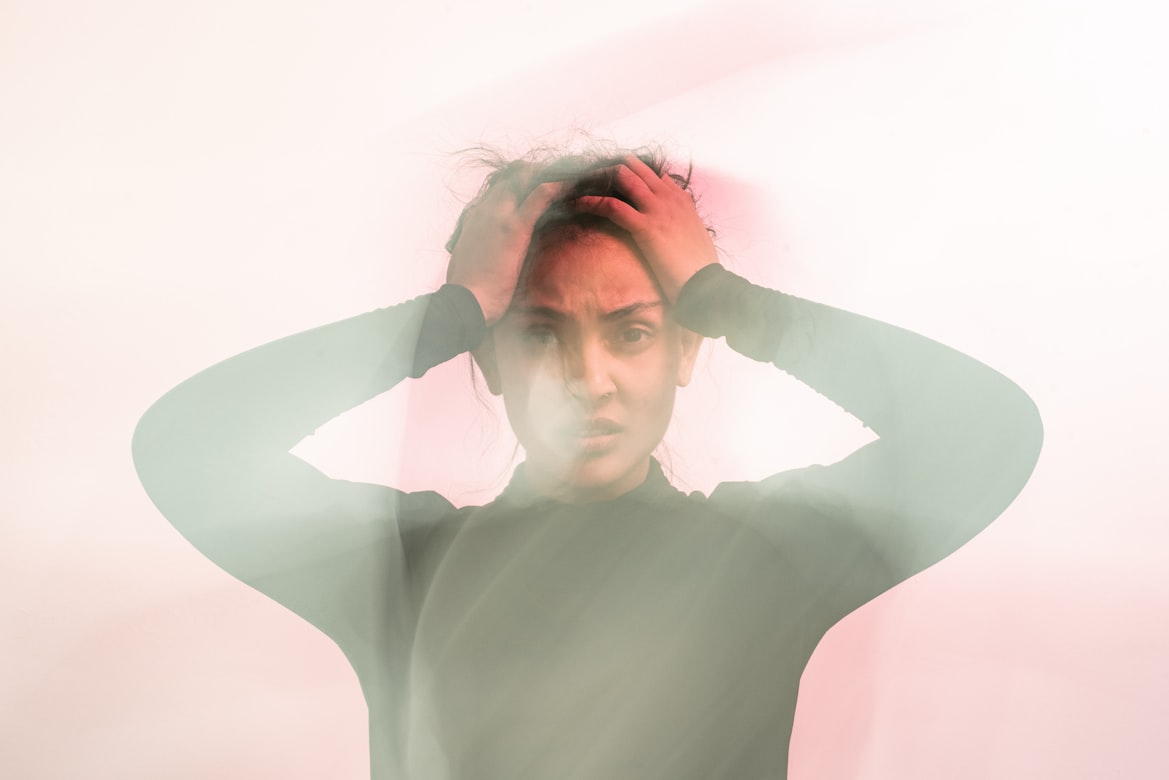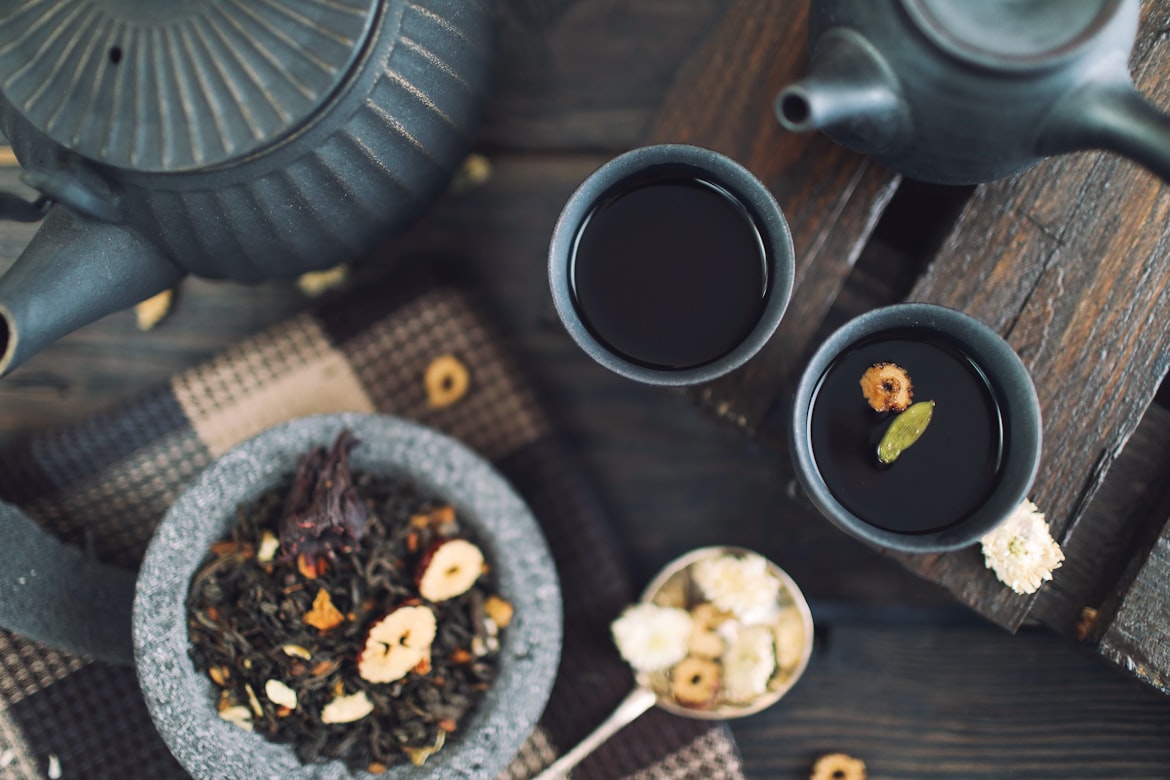Anxiety goes beyond just chronic stress, and though it’s the most treatable among mental diseases and the most common in the U.S, it often goes untreated. This means a host of hurdles for over 40 million Americans who are estimated to suffer from anxiety disorders.
Though anxiety symptoms vary depending on whether you have a generalized anxiety disorder, social anxiety, or post-traumatic stress disorder, they share a common denominator—they’re downright dreadful.
Alongside lack of focus and racing thoughts of doom and gloom, you can experience a host of persistent physical symptoms which can make your life even more unbearable. These include restlessness, increased heartbeat, and exhaustion.
Once these feelings start interfering with your functional ability, life’s serving you a red flag, and that’s when you should stop keeping remedies on the back burner.
Rule number one is don’t do it alone—seek professional help, but research and know your options first. Some anxiety cases should be treated with medication, but if you’d rather not complicate your life with the side effects of these drugs, look into holistic alternatives.
Psychotherapy, herbal supplements, and home remedies can bootstrap you out of the catch-22 situation.
That said, here’s our top pick of natural remedies for anxiety.
1. Try CBD Gummies, Oils & Treats
CBD has become popular in the past few years for good reasons. While cannabis and, in particular, THC are known to aggravate anxiety symptoms in larger doses and even form dependence, CBD allows you to enjoy the benefits of this extraordinary plant without the side effects.
Hemp-derived CBD is non-addictive and non-psychoactive as it contains only trace amounts of THC, which is the culprit behind euphoric states.
That said, CBD can help you cope with your anxiety symptoms without interfering with your daily life. Pop a CBD gummy, and you can go about your day in a more mellow, easy-going style while staying lucid and able to drive.
“Helps relieve my anxiety while keeping me clear headed. I used it a lot right before job interviews and it was very beneficial!” — Kimberly G
Although CBD is found to stimulate multiple brain sites, and there’s much more to explore in the way of future research, the beneficial activity of CBD ties in with its ability to stimulate the brain’s receptors for serotonin.
Need more proof than that? A 2020 review study examined the effectiveness of CBD in treating various anxiety disorders. The results show that CBD can be used as an effective therapy for treating generalized anxiety disorder, post-traumatic stress disorder, and social anxiety disorder.
CBD can also be used as a complementary therapy for anxiety or monotherapy if you want to avoid side effects from medication such as selective serotonin reuptake inhibitors (SSRIs).
However, more high-quality, large-scale clinical trials are needed to ascertain effective doses.
Did you know? CBD is one of the most optimal alternative therapies for anxiety since many different forms are available. This allows you to fine-tune your dosing until you get the right kind of mellow buzz that takes the stress away.
2. Consider Therapy
When reviewing your anxiety management options, therapy is a good contender. Plain and simple, therapy works, and several clinical studies back this up.
The field is rife with varied psychotherapeutic styles and practices, so you can choose between different approaches to manage anxiety and your specific set of problems. You can consider:
- Individual therapy. One-on-one therapy sessions will give you knowledge and tools to harness your anxiety. Whether you seek a specialist via your insurance or you’re more comfortable searching via online databases, you’ll be offered different therapeutic approaches, such as cognitive behavioral therapy (CBT), dialectical behavior therapy (DBT), talk therapy, acceptance and commitment therapy (ACT), etc.
- Applied relaxation. A trained therapist will walk you through a set of techniques to help you reduce anxiety. The weekly applied relaxation sessions focus on relaxing different muscle groups so you can have more control over your condition.
- Support groups. Support groups can help you feel less anxious as you exchange feedback with people sharing similar problems. Try seeking help via the Anxiety and Depression Association of America, or use google to whittle down your search for your specific condition.
Individual guided self-help. The internet is booming with different self-help programs that promise to treat anxiety. A word of caution, though, choose only platforms designed by trained professionals, such as the Daylight app. This app aims to provide cognitive behavioral therapy skills to people suffering from generalized anxiety disorder (GAD).
3. Hit The Outdoors And Break A Sweat
Next time you have the chance to hit the outdoors for a workout, remember it can help you move the needle with your mental health. Unlike anti-anxiety meds, you know you’re on the safe side. Plus, exercise is likely to take away the discomfort you have when you’re feeling on edge.
Spending time outdoors, hiking, cycling, or speed-walking can rewire your brain by triggering good hormones that can improve mood. Any exercise that gets your heart rate up tapers down stress hormones, like cortisol and adrenaline, and releases beneficial brain chemicals, like endorphins—which promote relaxation and optimism.
But exercise is more than just chemistry, it has to do with distracting your mind.
“Exercise and sports also provide opportunities to get away from it all and to either enjoy some solitude or to make friends and build networks. "All men," wrote St. Thomas Aquinas, "need leisure." Exercise is play and recreation; when your body is busy, your mind will be distracted from the worries of daily life and will be free to think creatively.” Source: Harvard Health Publishing
Exercise can alleviate anxiety symptoms, and there’s some evidence to back this up. A 2022 randomized controlled clinical trial found that exercise can be an effective treatment for people with anxiety disorders.
What’s more, hitting the great outdoors has several health benefits, such as burning off anxious energy, reducing stress, and improving well-being.
4. Keep Your Vitamin D Levels In Check
There’s reason to believe Vitamin D can help treat anxiety in patients with vitamin D deficiency. Yet, before seeking any vitamin D supplementation, you should investigate whether the deficiency is an issue in the first place.
Again, we’re making a case for venturing into the outdoors (or seeking to increase your vitamin D levels by eating fatty fish or supplementing). But vitamin D can help your system function at optimal levels. How does it work? Vitamin D is a part of the production of serotonin—the mood-boosting hormone that helps you feel calm and keeps you focused.
Research also links optimal vitamin D levels with improved anxiety symptoms. 6‐month administration of Vitamin D supplementation made substantial improvements in patients with depression and anxiety.
5. Master Your Time Management Skills
Too much on your plate can make you feel like you’re flushing your energy down the drain. What’s more, lacking time management skills can worsen your anxious feelings. So take time to organize your days a bit better.
Anxiety is already bad, and biting off more than you can chew can take away from your capacity to handle what life throws at you. One way to make things easier is to break major projects down into smaller chunks. Doing so makes daily tasks more manageable and less stressful.
And remember: steer clear of multitasking. Instead, try time management strategies such as using book-based planners and online calendars to organize your days. These will help you feel less restless and wound-up—guaranteed.
6. Consider Aromatherapy
Aromatherapy can lower your stress levels and increase your sense of well-being. It’s a soothing way to help manage your chronic anxiety. Plus, it’s an excellent excuse to take a breather from the hustle and bustle of daily life.
Inhaling active ingredients from soothing plant oils stimulates the smell receptors in your nose, which in turn sends signals to your nervous system. The result is feeling more relaxed and at ease, which is why people turn to aromatherapy as a natural remedy for treating anxiety.
Essential oils such as lavender can help with insomnia as well. One study examining insomnia in women found that lavender has sleep-inducing properties. It can help you ease into sleep by lowering your stress hormone and your heart rate.
7. Try Breathing Techniques
Breathing techniques are often recommended as a complementary treatment alongside anti-anxiety medication. Along with other relaxation exercises, they can help you manage stress and reclaim a state of calm.
Diaphragmatic or timed breathing techniques are the most popular types of therapeutic breathwork. We all know the feelings of the fight or flight response when our breathing quickens and our muscles stiffen. Well, these techniques work by helping you control the pace and depth of your breath. As a result, your heart rate goes down and signals to your body that there's nothing to fear.
8. Drink Herbal Teas
Herbal tea is an excellent alternative to coffee to lower your caffeine intake. And there’s more— a cup of tea can fit in plenty of goodness (and we’re not only talking about antioxidants here).
Herbal teas can lift your spirits and help with relaxation. They kick it out of the park in this department, and it’s not just based on anecdotal wisdom.
Many herbal teas promise to reduce anxiety and improve your mood, but not all are created equal. Some will have a more straightforward effect on the brain, reducing anxiety. These include chamomile, lavender, and green tea—and there’s data that support these claims.
- A double-blind, placebo-controlled, balanced crossover study explored the effects of l-theanine blended with phosphatidylserine (PS), alpha glycerylphosphorylcholine (GPC), and chamomile. The findings saw a significant reduction in subjective stress response one-hour post-dose. There was also a drop in cortisol levels three hours after the administration of the active treatment.
- Lavender has also been shown as an effective natural treatment for improving anxiety symptoms and feelings of agitation and nervousness.
Chamomile contains the antioxidant apigenin, which may be an effective antianxiety agent. Its anxiolytic effect comes from stimulating the GABA receptors in your brain. Apigenin holds promise for future prophylactic treatment but is also under investigation for possible use in therapeutic drugs.
Face Your Anxiety Head-On
Want to invite that easy, laid-back feeling back into your life? There are ways to do this beyond anti-anxiety medications, and they allow you to go around any unwanted side effects.
Many people respond well to natural remedies for anxiety, and you may be one of them. Take the natural remedies above for a spin and learn more about how CBD can help you fight anxiety with dignity and grace:
- An Authentic Beginners Guide to Weed Gummies
- CBD for Pain Relief: Can Gummies Actually Work
- How Long Do Edibles Stay In Your System
- How and Why You Should Take CBD Gummies for Sleep
- Tincture & Gummies: Why It’s the Best Combo Since Mac n Cheese
Dad Grass is all about offering products that can get you into a state of reliable chill, without the funky chemicals.
We’re dedicated to bringing people the best of CBD. No nonsense. Only 100% plant-based ingredients. And we’re here for all the backup you need to make CBD work to your best advantage. So, don’t hesitate to sign up for our newsletter too.
Resources
https://adaa.org/understanding-anxiety/facts-statistics
https://www.apa.org/ptsd-guideline/patients-and-families/cognitive-behavioral
https://www.ncbi.nlm.nih.gov/pmc/articles/PMC2963469/
https://contextualscience.org/act
https://adaa.org/supportgroups
https://www.nice.org.uk/advice/mib309
https://www.health.harvard.edu/staying-healthy/exercising-to-relax
https://www.ncbi.nlm.nih.gov/pmc/articles/PMC7667301/
https://www.mdpi.com/2072-6643/8/1/53
https://www.ncbi.nlm.nih.gov/pmc/articles/PMC6007527/
https://www.ncbi.nlm.nih.gov/pmc/articles/PMC6472148/
https://www.hindawi.com/journals/ecam/2012/740813/
https://www.sciencedirect.com/science/article/pii/S154431911930514X
Check Other Products Of Dad Grass:
- Dad Grass Deluxe THC + CBD Gummies
- Dad Grass Hemp CBD Pre Rolled Joints 10 Pack
- Dad Grass CBD Hemp Flower Quarter Ounce
- Dad Grass Classic Formula CBD Tincture
- Dad Grass CBD Dog Bones





